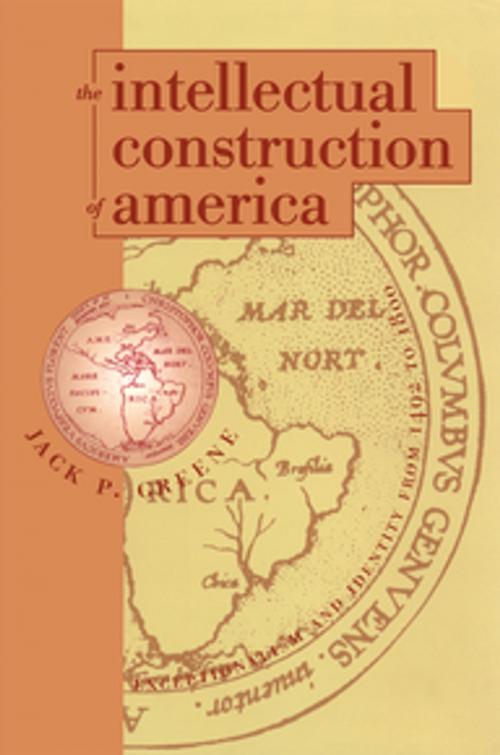The Intellectual Construction of America
Exceptionalism and Identity From 1492 to 1800
Nonfiction, History, Americas, North America, United States, Colonial Period (1600-1775)| Author: | Jack P. Greene | ISBN: | 9780807861776 |
| Publisher: | The University of North Carolina Press | Publication: | November 9, 2000 |
| Imprint: | The University of North Carolina Press | Language: | English |
| Author: | Jack P. Greene |
| ISBN: | 9780807861776 |
| Publisher: | The University of North Carolina Press |
| Publication: | November 9, 2000 |
| Imprint: | The University of North Carolina Press |
| Language: | English |
Jack Greene explores the changing definitions of America from the time of Europe's first contact with the New World through the establishment of the American republic. Challenging historians who have argued that colonial American societies differed little from those of early modern Europe, he shows that virtually all contemporary observers emphasized the distinctiveness of the new worlds being created in America. Rarely considering the high costs paid by Amerindians and Africans in the construction of those worlds, they cited the British North American colonies as evidence that America was for free people a place of exceptional opportunities for individual betterment and was therefore fundamentally different from the Old World. Greene suggests that this concept of American societies as exceptional was a central component in their emerging identity. The success of the American Revolution helped subordinate Americans' long-standing sense of cultural inferiority to a more positive sense of collective self that sharpened and intensified the concept of American exceptionalism.
Jack Greene explores the changing definitions of America from the time of Europe's first contact with the New World through the establishment of the American republic. Challenging historians who have argued that colonial American societies differed little from those of early modern Europe, he shows that virtually all contemporary observers emphasized the distinctiveness of the new worlds being created in America. Rarely considering the high costs paid by Amerindians and Africans in the construction of those worlds, they cited the British North American colonies as evidence that America was for free people a place of exceptional opportunities for individual betterment and was therefore fundamentally different from the Old World. Greene suggests that this concept of American societies as exceptional was a central component in their emerging identity. The success of the American Revolution helped subordinate Americans' long-standing sense of cultural inferiority to a more positive sense of collective self that sharpened and intensified the concept of American exceptionalism.















